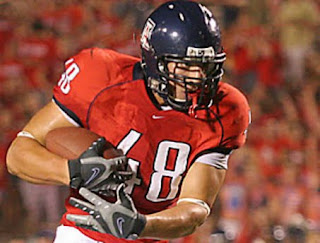
What was the recruiting process like when you were in high school for your wrestling abilities?
To be honest, I wasn’t really heavily recruited. I had a few colleges looking at me, such as Bloomsburg University, York College, The Citadel, and Franklin & Marshall. I didn't get any scholarship money when I first went Bloomsburg until after first semester when they decided to give me $500 a semester.
You ended up going to York College and winning two D-3 national championships. Do you think you can compete with a lot of wrestlers in D-1 programs?
There is no doubt in my mind that I could compete at the Division 1 Level. During my time at York, I beat guys from, Penn St., Lehigh, Clarion, Duke( 2x ACC Champ), Maryland, Lock Haven, & Delaware State to name a few. After I won nationals my senior year, I was ranked #3 out of all 184 pounders in all divisions ( I, II, III).
Can you describe the transition from wrestling to competing in mixed martial arts?
I was never into fighting and I'm still not into fighting. That’s street fighting. The hardest thing for me to learn was the striking game. I watched videos and went to practice, but after my first pro fight I went to my dad (Black Belt in Tae Kwon Do) to teach me. However, I fell in love with the grappling part. I continue to work tremendously hard at every aspect of the fight game.
With your wrestling pedigree and your current record; have you gotten any attention from major MMA promotions like UFC, Strikeforce, Bellator, etc?
To this point, I haven't heard anything from the major promotions. The goal however is to make it into a major promotion before the end of the year or early next year. I seriously am taking one day, one training session, one lift, and one fight a time. I will let the other stuff figure it out. I just try to control what I can and worry about that.
What does your training schedule look like when you are currently training for a fight?
I work from 7am - 2:30pm. I lift from 3:30-4:15pm. Coach wrestling practice at York College from 4:15-5:45/6pm. Then I usually have stand up from 7:30-8:15/:30pm. If I am scheduled to, I will have a run/cardio workout later that night. A typical week might look like this.
Mon: Lift, Wrestle, Stand up
Tues: Cardio, Stand up
Wed: Lift, Wrestle & Ground (MMA)
Thurs: Cardio, Stand up
Fri: Lift, Wrestle, Stand up
Sat: Rest
Sun: Cardio, Ground (MMA)
I also listen to my body and how it is feeling. If it starts to get run down then maybe take a training session off here and there. I also start to back off with the hard training the closer I get to a fight. The week prior to a fight, the workouts intensity backs off. All of my training sessions are short and intense. Once we get started, it's none stop for around an hour.
Would you like to thank anyone (family, friends, coaches, sponsors, etc)
I definitely have a lot of people I would like to thank. First off would have to be my parents & sister. They have been there from day one of my wrestling career and now my fighting career. The next person is my fiancé. All four of them keep me humble and motivated to be the best individual & fighter that I can possibly be. I definitely have to give a BIG thank you to Chad Strawbridge & my dad! They are my coaches and push me to new highs and teach me something new every time we have a training session! Also, to my close personal friends who have always been there for me. Lastly I would like to thank the rest of my supporters who are at all my fights. They are by far the loudest group at the fights & that’s what makes it exciting for me. Thank you to everyone & I appreciate everything anyone has ever done for me!



















